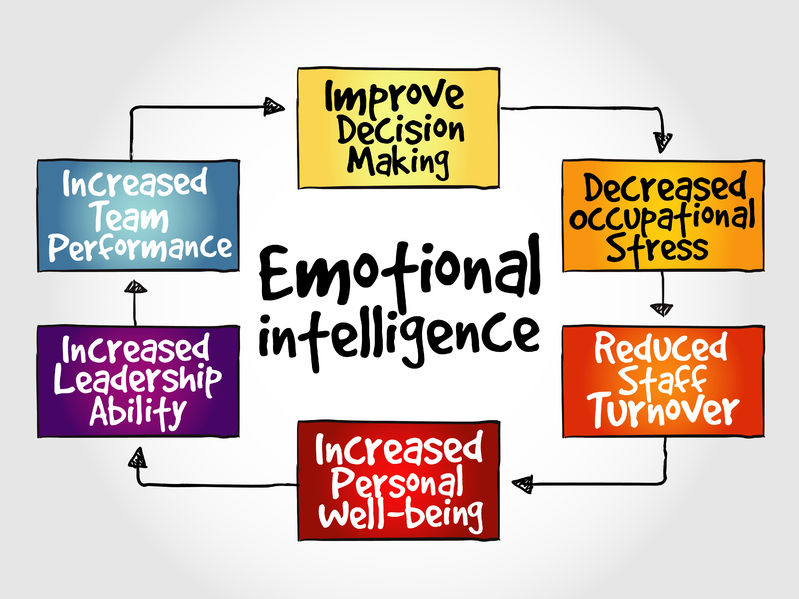Firstly, don’t confuse your Intelligence Quotient (IQ) with your Emotional Quotient (EQ). The two are unconnected. People with a high IQ often have a low EQ. Your IQ rates your intelligence or cleverness and your EQ rates your emotional wisdom.
Regrettably the business boardrooms of the world are full of people with very high IQs and not so high EQs. All of their businesses are critically dependent on their EQ to relate to their staff and their customers (people). This is where their EQ can give them the edge, unlike their IQ which is determined substantially at birth. EQ can be developed throughout their life.
Let’s look at take a look at what makes up your EQ. According to the authors of Emotional Intelligence 2.0, Travis Bradberry & Jean Greaves, there are four distinct components through which to determine your EQ. These are:
- Self Awareness Strategies
- Self Management Strategies
- Social Awareness Strategies
- Relationship Management Strategies.
Self Awareness is a deep-seated desire to know yourself intimately, and may often become a never-ending objective, such is the commitment to constantly review and get to know your ever-changing self.
Self Management is a deep desire to continually use your awareness of your emotions to choose carefully and wisely, what to say and do, even when your emotions seem to want to take control of you.
Social Awareness is the deep seated ability to know how someone is feeling before they ever tell you about the issues which are impacting on them, regardless of if their issues are heartbreaking or pleasurable.
Relationship Management is the deep seated desire to endlessly work on your relationships with others in the knowledge that the original union (wedding) and the resultant honeymoon will need to be constantly reviewed and never taken for granted in order to ensure that the relationship will grow and be sustained over time. People strong in this segment of EQ know that everyone’s needs must be in constant balance.
Others who have written about EQ suggest that Motivation, Empathy and People Skills all play an important part in assessing, developing and creating a persons EQ.
If you are a sales professional and you already have to some extend all these EQ strategies, then the next stage in the process is to use them skilfully when dealing with others. The Institutes 12 Immutable Laws of Relationship Based Selling clearly supports the Relationship Management and Social Awareness strategies of your EQ development process.
The continuous development of your Self Awareness and Self Management strategies of EQ have also been addressed within your sales career information and sales management information career books.
The other issues of Motivation, Empathy and People Skills can be also further explored throughout the ISI library and particular reference can be found about EQ and its pertinence to the sales profession within the document Emotional Intelligence.
If you’re a sales manager and you wish to include the subject of EQ assessment into your future recruiting interviews, you can access a document called Interview Questions to Assess Emotional Intelligence, in the ISI library which will be of great assistance.
You may also wish to expand your knowledge on Emotional Intelligence by reading Emotional Intelligence 2.0 by Travis Bradberry & Jean Greaves.
We wish you continued relationship success with all those around you by assessing and continuously developing your abundant and endless EQ capabilities.



